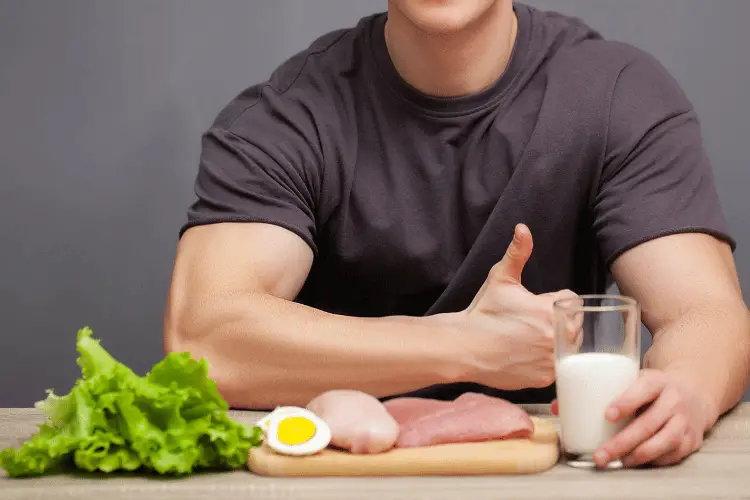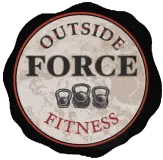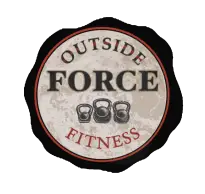While bodybuilding is an effective way to get fit and stay healthy, it comes with some drawbacks as well. Before you decide if bodybuilding is right for you, there are some things you need to consider.
In this article, we’ll explore the pros and cons of bodybuilding, from improving your mental health to how it requires a financial commitment.
We’ll make sure you have all the information you need before committing to an activity that can change your life, hopefully for the better!
What’s Bodybuilding?
Bodybuilding is a training technique that focuses on building muscle mass to achieve a strong muscular physique. Bodybuilders usually follow a rigorous training program.
They focus on training using high weights, lifting machines, and other resistance training. Furthermore, bodybuilders pay close attention to their diet and supplementation to achieve their goals.
Some people think of Arnold Schwarzenegger or Ronnie Coleman when hearing about bodybuilding. Well, that’s bodybuilding on a professional level, where bodybuilders compete to display muscle mass, symmetry, and strength.
Still, you can be a bodybuilder without becoming a professional. If you establish a training regimen to build muscles, you can proudly call yourself a bodybuilder.
Benefits of Bodybuilding
While bodybuilding primarily focuses on increasing overall muscle mass and reducing fat, it has other health benefits, too. Let’s look at all the benefits of bodybuilding in more detail.
- Increases Muscle Mass
Bodybuilding is about building bigger and stronger muscles. Since bigger muscles mean more strength, bodybuilding improves your performance in any activity that requires strength.
What’s more, enhancing your muscle tone will lead to a proportionally shaped and fit body.
- Improves Mental Health
Furthermore, vigorous exercise will help you develop a better self-image. As you build muscles and lose fat, you’ll achieve a better physique and feel proud of your progress.
It’s scientifically proven that physical activity and training stimulate the release of endorphins, which are natural mood enhancers. That’s why bodybuilding reduces symptoms of stress, anxiety, and depression.
- Helps You Stick to a Healthy Diet

Bodybuilding isn’t just about pumping iron and supplementing. It involves sticking to a healthy eating plan as well. Bodybuilders are notorious for their strict eating habits.
Whether you’re a professional or a newbie, you need a well-balanced diet to build muscles and lose fat. That said, if you stick to any general bodybuilding diet plan, you’ll eat healthier than usual.
Generally speaking, a bodybuilding diet focuses on high protein intake as it’s essential for muscle growth and repair. Complex carbohydrates like whole grains, fruits, vegetables, and legumes are also crucial to provide energy for workouts and muscle recovery.
You’ll also need to cut down on a variety of unhealthy foods such as:
- Added sugars like candy, cookies, donuts, and ice cream
- Alcohol
- Deep-fried foods such as French fries, chicken strips, and onion rings
- High-fat foods
- Carbonated beverages
Even if you’re not committed to strictly following a bodybuilding eating plan, your body composition will drastically improve if you reduce your consumption of unhealthy food.
That’s why following a bodybuilding plan is beneficial for anyone seeking a healthier lifestyle.
- Builds up Your Self-Esteem
According to the L.A. Times, only 30% of adults are satisfied with their looks. Bodybuilding won’t only help you reach an ideal physique, but it can change your life too. Building muscles and looking shredded can have a positive influence on your self-esteem and confidence.
Further, your ability to complete strenuous training sessions will make you believe you can overcome other fears and challenges in your life.
Whether you want to look bulky or just lose a few pounds, bodybuilding is the way to reach your dream physique.
- Teaches You Discipline and Commitment
Reaching your ideal physique isn’t a walk in the park. The process requires a great deal of time, effort, dedication, and commitment.

If you have enough discipline to stick to a bodybuilding training regimen, you’ll translate qualities such as dedication and perseverance into other aspects of your life. This can help you grow and succeed in your personal life.
- Boosts your Metabolism
Strength training massively boosts your resting metabolic rate. That means you burn more calories doing normal daily activities, even on rest days.
Research shows that strength training exercises can boost your metabolic rate for up to 72 hours. As a result, you’ll burn more calories, lose weight, and improve your overall health
Drawbacks of Bodybuilding
Despite all the benefits of bodybuilding, there are some drawbacks that many athletes experience, especially on the professional level.
- Limited Flexibility
Diet is crucial for bodybuilding. Strict diets are usually boring, but they achieve better results. However, if you stick to a healthy bland diet, you’ll eventually get bored and struggle to control your cravings.
You can’t just eat what you want as a bodybuilder. So if you’re on a family vacation, you should prepare your meals and supplements in advance. You might also need a place with a gym nearby.
A casual night out with friends might feel like a military operation for a bodybuilder. In other words, you lose spontaneity as a bodybuilder.
- Impact on Social Life and Personal Relationships
The time and commitment required to be a bodybuilder can sometimes strain your social life and relationships.
For instance, if you’re religiously keeping track of your calories and eating habits every day, prepare to spend time eating alone.
- You Can Become an Excessively Critical Character
Bodybuilders are usually hypercritical about their looks and diet. They either feel too fat, skinny, bloated, or small.
No matter how hard they train, bodybuilders struggle to feel satisfied with their bodies. This lifestyle can lead to mental problems like disordered eating and muscle dysmorphia.
As such, bodybuilders who suffer from muscle dysmorphia continue exercising, take more supplements, and may eventually shift to abnormal eating habits.
- Bodybuilding Isn’t Cheap
It’s no secret that bodybuilding is an expensive sport. While you’ll generally be spending money on the basics like gym memberships and supplements, you’ll be tempted to splurge on other stuff. That includes expensive protein shakes, clothing, and workout equipment.
Plus, if you’re a professional bodybuilder, each competition comes with a hefty bill to pay. That includes registration fees, travel expenses, and accommodation costs.
A nutritious diet isn’t always the most affordable option, either. While high-protein and healthy foods are beneficial, they usually cost more than processed or fast-food options.
We’re not saying you should eat junk food, but you should understand that healthy food doesn’t come cheap.
Moreover, if you’re just starting, you’ll need a personal trainer for guidance and support. While professional trainers can save you a lot of time and effort, their fees will add up to bodybuilding costs.
Despite all this, there are ways to minimize bodybuilding costs. After all, it depends on your budget.
For example, you can shop for affordable gym memberships instead of paying for a luxurious gym. You can also look for deals on supplements and workout equipment. Finally, learning how to prepare meals at home is cost-effective.
- Bodybuilding Isn’t a Sustainable Lifestyle
As we mentioned earlier, bodybuilding isn’t just about training and eating well. It’s a lifestyle that demands time and effort. That said, this lifestyle isn’t sustainable for everyone.
For example, it takes discipline and commitment to deny yourself your favorite food. It’s also challenging to deprive your body of carbs and fats.
If an injury or illness interrupts your training routine, you won’t be able to stick to your high-protein diet. As such, you can’t sustain your muscles.
- Health Risks

Even though bodybuilding is beneficial for your fitness and overall health, it’s associated with some health risks.
Injury risk is always there when exercising, and bodybuilding is no exception. Since bodybuilding involves lifting heavy weights, it can lead to injuries such as muscle tears, joint sprains, and tendonitis.
That’s why it would be best to have a training partner or trainer to help you lift heavy weights safely.
Moreover, excess animal protein intake can harm your kidneys and liver. Depriving your body of fats can also unlock health issues such as hormonal imbalances, gut problems, and cognitive disorders.
Some bodybuilders opt for steroids and proteins to increase their anabolic hormones to promote muscle development and bone growth. Unfortunately, these supplements can lead to hormonal imbalances and affect metabolism.
Despite the health issues associated with bodybuilding, the potential health benefits outweigh the risks.
To Sum Up
Bodybuilding isn’t all about lifting weights and growing big muscles. It’s an art form that demands time, effort, dedication, and focus to achieve your desired results.
Whether you’re looking to start bodybuilding as a hobby or a full-time job, you need to understand the pros and cons of bodybuilding before you start.
On the plus side, bodybuilding will help you become fitter, look better, improve your overall health, and teach you discipline and commitment.
On the flip side, the bodybuilding lifestyle isn’t sustainable for everyone. You’ll have limited flexibility when eating, traveling, sleeping, and hanging out with friends.
You should also be aware of the health risks associated with bodybuilding such as eating disorders and muscle dysmorphia.
References
- https://brieflands.com/articles/ijhrba-13221.html
- https://www.healthline.com/nutrition/bodybuilding-meal-plan
- https://www.latimes.com/archives/la-xpm-1990-08-19-mn-2830-story.html
- https://pubmed.ncbi.nlm.nih.gov/23566074/
- https://www.healthline.com/health/disordered-eating-vs-eating-disorder
- https://www.nature.com/articles/s41598-018-27176-9
- https://my.clevelandclinic.org/health/diseases/10919-tendinitis
- https://www.healthline.com/health/too-much-protein
- https://www.nhs.uk/conditions/anabolic-steroid-misuse/
- https://www.webmd.com/men/anabolic-steroids
- https://www.humnutrition.com/blog/side-effects-of-a-low-fat-diet/


